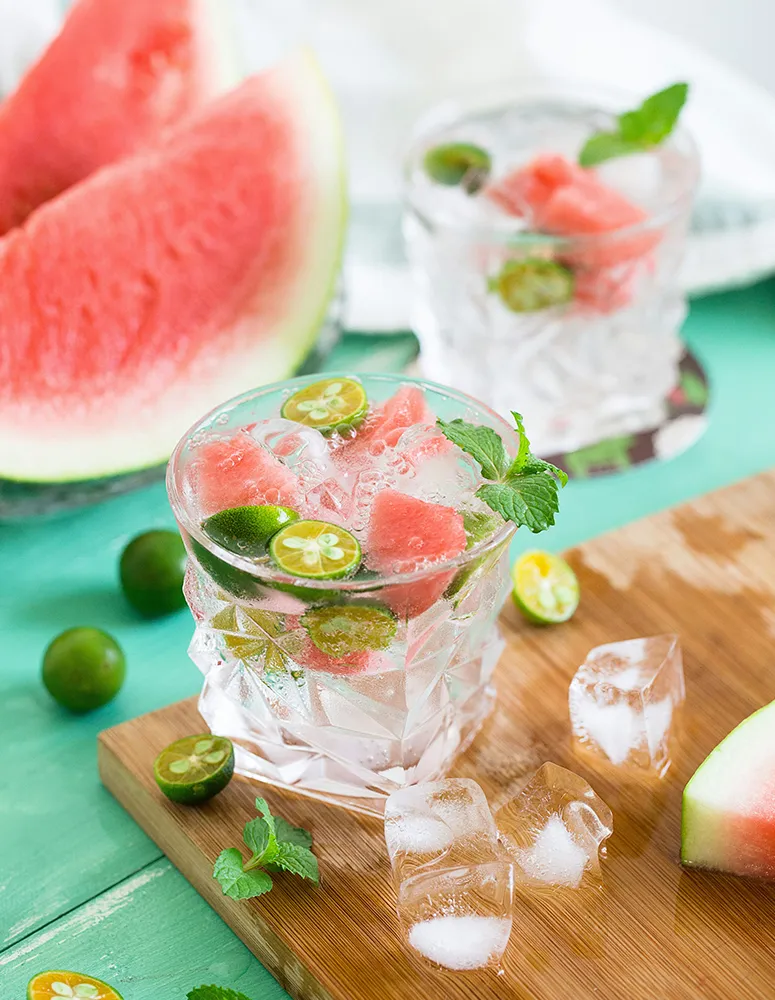The summertime secret to lifelong wellness: cellular hydration
As a physician, pharmacist, and someone deeply committed to skin and whole-body wellness, I’ve spent decades exploring the fundamental causes of aging. What I’ve found over the years—both in my practice and in scientific research—is that one of the simplest, yet most overlooked keys to preventing the degenerative diseases we associate with aging and maintaining long-term health is hydration. Not just drinking water, but truly hydrating your body at the cellular level.
At no time is this more critical than during the summer months, when higher temperatures, more time outdoors, and increased physical activity lead to accelerated fluid loss, as well as the risk of sun damage to your body’s protective barrier: the skin. And the risks go far beyond temporary dehydration.
Through my analysis of data from the National Health and Nutrition Examination Survey (NHANES), a long-term study conducted by the Centers for Disease Control and Prevention (CDC), I discovered something remarkable: many of the conditions we traditionally associate with aging—loss of muscle mass, cognitive decline, chronic fatigue, even metabolic disorders—correlate significantly with a loss of intracellular water. In other words, as our cells lose their ability to hold water, we age faster and become more vulnerable to disease.
Cellular hydration is not just about drinking more water (though that helps). True hydration requires a lifestyle approach that nourishes the body and strengthens the cells’ ability to retain moisture. One of the best ways to do this is, as I always say, “Eat your water!”
Water-rich fruits and vegetables are powerful tools for hydrating your body from the inside out. Foods like cucumbers, strawberries, zucchini, and leafy greens, not only boost hydration but also deliver vitamins, minerals, fiber, and phytonutrients that repair and strengthen your cells. Some moisture-rich foods not only deliver structured water, which your cells can absorb more efficiently than plain drinking water, but even provide sun protection.
Take watermelon and tomatoes, for example—both are over 90% water and packed with lycopene, a powerful antioxidant. Lycopene has been shown in clinical studies to help protect the skin from UV-induced damage. In other words, it acts like an internal sunscreen, helping to reduce the risk of sunburn and long-term photo-aging. Other excellent sources of lycopene include red grapefruit, guava, and pink papaya. So yes, you can actually “Eat your sunscreen!”
Just as important as getting water into your cells is keeping it there. That means strengthening the cell membranes, which function as protective barriers. When these membranes are healthy and resilient, they help lock in moisture and nutrients while filtering out toxins and waste. You can support membrane strength with omega-3 fatty acids found in foods like salmon, flaxseeds, walnuts, and chia seeds, as well as with lecithin-rich foods like eggs and soybeans. Antioxidants such as vitamin E, found in almonds and avocados, also help maintain membrane flexibility and prevent damage from oxidative stress. Finally, organic compounds called osmolytes help the cell maintain optimal water balance. Foods that contain osmolytes include eggs, meat, fish, beets, broccoli, and spinach, among others.
Finally, hydration isn’t just physical. Emotional and environmental stress also dehydrate the body. When we’re under stress, cortisol levels rise, which impairs our cells’ ability to hold onto water. That’s why I advocate for what I call “Inclusive Health”—a holistic approach that encompasses not only what we put in our bodies, but also how we live our lives.
In the summer, it’s especially important to be mindful of your hydration habits:
- Start your day with water-rich foods like a fresh fruit smoothie, yogurt with berries, watermelon, or other fruits, or even a fresh tomato salad.
- Add protein in the form of embryonic foods like eggs, nuts, and seeds, and consider adding veggies, like mushrooms, tomatoes, onions, spinach, and avocado, to your eggs.
- Drink water consistently throughout the day instead of chugging it all at once.
- Add slices of cucumber or citrus to your water to make it more enjoyable and nutrient-rich.
- Limit dehydrating substances like alcohol and caffeine, especially in the heat.
- Wear (and eat) your sunscreen! (Sun damage is a major source of cell membrane breakdown.)
- Take breaks from the sun and give your body time to cool down and recover.
- But that doesn’t mean to skip exercise! Exercise builds muscle, which contains more water than fat, meaning it improves hydration over time.
- Practice daily stress-reduction techniques like mindful breathing, meditation, journaling, or taking a short walk in nature.
Hydration is a daily commitment. But when you hydrate your cells effectively, you’re not just quenching your thirst—you’re fighting aging, protecting your skin, and laying the groundwork for a longer, healthier life.
Stay cool, stay nourished, and remember: water is life—especially at the cellular level.
That’s #ModernWellness!
